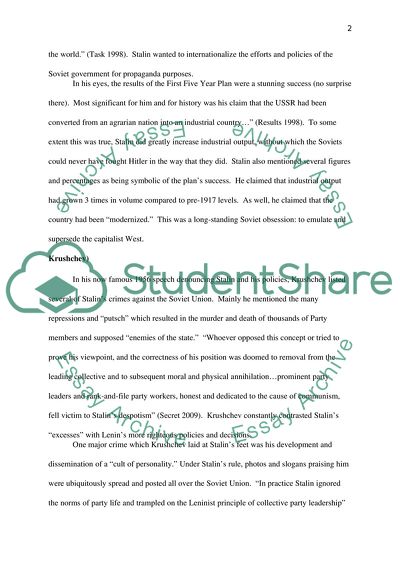Cite this document
(The Soviet Leaders as Joseph Stalin, Khrushchev, Merman Essay Example | Topics and Well Written Essays - 1500 words, n.d.)
The Soviet Leaders as Joseph Stalin, Khrushchev, Merman Essay Example | Topics and Well Written Essays - 1500 words. https://studentshare.org/history/1731047-stalin-khrushchev-and-their-legacies
The Soviet Leaders as Joseph Stalin, Khrushchev, Merman Essay Example | Topics and Well Written Essays - 1500 words. https://studentshare.org/history/1731047-stalin-khrushchev-and-their-legacies
(The Soviet Leaders As Joseph Stalin, Khrushchev, Merman Essay Example | Topics and Well Written Essays - 1500 Words)
The Soviet Leaders As Joseph Stalin, Khrushchev, Merman Essay Example | Topics and Well Written Essays - 1500 Words. https://studentshare.org/history/1731047-stalin-khrushchev-and-their-legacies.
The Soviet Leaders As Joseph Stalin, Khrushchev, Merman Essay Example | Topics and Well Written Essays - 1500 Words. https://studentshare.org/history/1731047-stalin-khrushchev-and-their-legacies.
“The Soviet Leaders As Joseph Stalin, Khrushchev, Merman Essay Example | Topics and Well Written Essays - 1500 Words”. https://studentshare.org/history/1731047-stalin-khrushchev-and-their-legacies.


